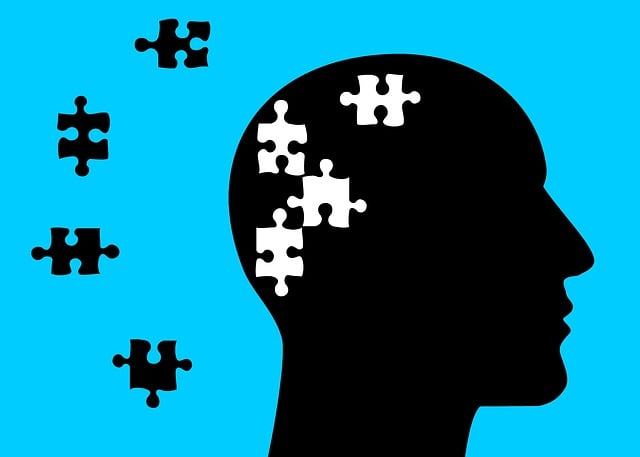Resilient Family Modeling (RFM), a therapy approach from Superior Blended Families Therapy, strengthens familial connections and adaptability during challenges, particularly in blended families. Through structured exercises, RFM teaches coping mechanisms and stress management strategies, reducing mental health stigma. The process begins with assessing each family member's mental state and resilience, followed by tailored activities like mindfulness practices, problem-solving workshops, and exposure therapies. Consistent practice builds mental fortitude, fostering a natural response to adversity. For blended families, RFM successfully navigates complex dynamics, enhances communication, and promotes healthier relationships, addressing challenges like differing parenting styles and adjustment difficulties with tailored interventions from mental health professionals.
“Uncovering the secrets to fostering resilient and harmonious blended families, this comprehensive guide delves into the power of RFM (Recovery, Flexibility, and Mastery) techniques in family therapy. Discover how these principles can transform relationships and enhance overall well-being.
We’ll explore the role of RFM in understanding and addressing the unique challenges of blended families, offering a step-by-step approach to implementing effective resilience-building exercises. By the end, you’ll grasp the benefits and potential hurdles, empowering you to facilitate superior blended family therapy.”
- Understanding RFM and Its Role in Family Therapy
- Implementing Resilience-Building Exercises: A Step-by-Step Guide
- Benefits and Challenges of Blended Families Using RFM Techniques
Understanding RFM and Its Role in Family Therapy

Understanding RFM—or Resilient Family Modeling—is a cornerstone in family therapy that focuses on strengthening familial bonds and fostering adaptability amidst challenges. This approach recognizes the power of shared experiences and positive interactions in shaping a family’s resilience, particularly within the context of blended families. By integrating techniques from Superior Blended Families Therapy, therapists can guide families toward improving communication, conflict resolution, and overall emotional well-being.
In today’s world, where mental health issues are increasingly recognized, RFM plays a pivotal role in Public Awareness Campaigns Development and Mental Illness Stigma Reduction Efforts. Through structured exercises, families learn to navigate complexities, build coping mechanisms, and enhance their ability to manage stress collectively. Moreover, Risk Management Planning for Mental Health Professionals becomes more effective when therapists employ RFM, as it enables them to provide tailored support that strengthens the family system rather than merely addressing individual symptoms.
Implementing Resilience-Building Exercises: A Step-by-Step Guide

Implementing Resilience-Building Exercises: A Step-by-Step Guide
In the realm of family therapy, fostering resilience is akin to arming individuals with the tools to navigate life’s challenges effectively. Superior Blended Families Therapy offers a comprehensive approach to this process, starting with an assessment of each family member’s current mental state and resilience level. Once identified, tailored exercises are designed to enhance positive thinking and promote emotional agility. These activities aim to challenge negative thought patterns, encouraging healthier coping mechanisms that can mitigate the impact of stress and adversity.
The therapy then progresses to practical implementation, where families engage in a series of resilience-building activities. This includes mindfulness practices, problem-solving workshops, and exposure therapies designed to help individuals confront and overcome fears. By regularly practicing these exercises, family members gradually build mental fortitude, effectively reducing the impact of potential triggers associated with mental illness stigma reduction efforts. Through consistent effort, families can cultivate an environment where resilience becomes a natural response to life’s inevitable ups and downs.
Benefits and Challenges of Blended Families Using RFM Techniques

Blended families, composed of step-parents and children from previous relationships, can greatly benefit from Relational Functioning Model (RFM) techniques offered by Superior Blended Families Therapy. This approach helps in navigating complex family dynamics, fostering healthier relationships, and enhancing communication. RFM focuses on improving self-esteem improvement, strengthening bonds between step-parents and children, and providing trauma support services to create a nurturing environment.
However, implementing RFM comes with its challenges. Step-parents might struggle with aligning their parenting styles, while children may experience difficulty adjusting to new family structures. Risk management planning for mental health professionals is crucial to address potential triggers and emotional hurdles. Through tailored interventions, these challenges can be mitigated, enabling blended families to thrive and build resilience together.
In conclusion, implementing RFM (Resilience, Flexibility, and Mastery) techniques in family therapy proves to be a powerful approach for enhancing the well-being of blended families. By fostering resilience through structured exercises, therapists can help individuals navigate the complexities of step-relationships, promoting healthier dynamics and stronger family bonds. While challenges exist, especially in adapting these methods to diverse family structures, the benefits of RFM are undeniable in creating superior blended family environments where every member feels valued and supported.














